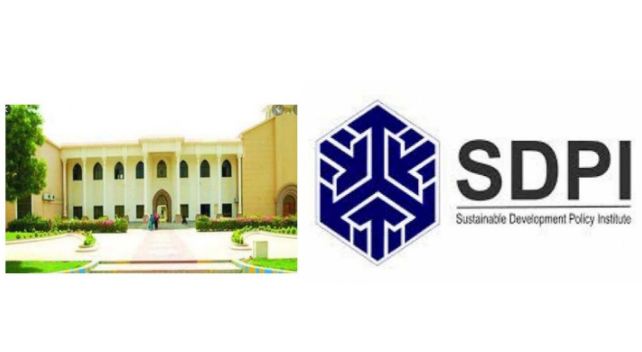iTFA-free alternatives, reformulation strategies to help Pakistan enable healthier food options for consumers: Dr Vaqar

ISLAMABAD, MAY 19 /DNA/ – Vaqar Ahmed, Joint Executive Director of the Sustainable Development Policy Institute (SDPI), underscored the potential for Pakistan to offer healthier food choices and meet evolving regulatory standards by embracing iTFA-free alternatives and reformulating products.
Addressing attendees at the SDPI’s session titled ‘Empowering SMEs; Training on reducing industrial trans fatty acids for a healthier Pakistan,’ Dr. Ahmed emphasized the critical importance of reducing industrially produced trans fatty acids (iTFAs). He stressed the necessity for informed strategies and well-planned regulations in this domain.
The discussion spanned a breadth of crucial topics, including the sources and health risks associated with TFAs, national and international regulations, and strategies for iTFA-free alternatives and reformulation.
Dr. Ahmed delineated the subsequent actions for both small and medium-sized enterprises (SMEs) and government entities. He emphasized the need for SMEs to integrate the insights gained from the session into their operations, while urging government institutions to provide ongoing support and guidance to SMEs, ensuring compliance with regulations and fostering innovation and reformulation.
Muhammad Salman, Country Lead at Cargill, highlighted the session’s goal of enhancing the lives of Pakistanis. He acknowledged Pakistan’s lack of legislative mandates in this regard, noting Cargill’s adherence to WHO-recommended tolerance levels and cessation of collaborations involving oil and fat businesses. Salman also pointed out the existence of labeling laws in the United States since 2006, with businesses being urged to reduce iTFAs by 2016.
Dr. Razia Safdar, Senior Advisor at SDPI, delved into the significant impact of dietary choices on health outcomes in Pakistan. She elucidated the components of a balanced diet, cautioning that not all fats are created equal. While monounsaturated and polyunsaturated fats offer health benefits, saturated and trans fats can pose health risks.
Dr. Safdar highlighted the worrisome presence of iTFAs in products such as shortening, margarine, banaspati, and non-dairy coffee creamers, linking them to an elevated risk of non-communicable diseases (NCDs) like diabetes and hypertension. She emphasized the urgent need for action, given Pakistan’s alarming rates of these conditions, with trans fats contributing to 58% of annual deaths.
Dr. Tahira Siddique, Deputy Director of the Islamabad Food Authority, discussed the historical popularity of trans fatty acids and Pakistan’s status as the second-largest consumer in the Eastern Mediterranean Region. She underscored the WHO’s recommendation to limit iTFAs to no more than two percent of total fat in food products and highlighted the ‘REPLACE’ initiative aimed at promoting healthier fats globally.
Dr. Syed Muhammad Ghufran Saeed, Associate Professor at the University of Karachi, shared insights into iTFA-free alternatives and reformulation strategies, stressing the need for concerted efforts to reduce trans fat content. He outlined core strategies, including formulation, genetic modification, hydrogenation, fractionation, and interesterification.
Farah Ather, Deputy Director of Standard and Accreditation at the Punjab Food Authority, addressed the escalating crisis of non-communicable diseases in Pakistan. She lamented the high mortality rates attributed to NCDs, particularly cardiovascular diseases.
The session aimed to equip SMEs in the food industry with an understanding of the health risks associated with iTFA consumption and explore viable alternatives for product reformulation. By empowering SMEs to adhere to national and international iTFA standards, Pakistan can contribute to a healthier food landscape.
Related News

SJC to ‘widen consultation’ on IHC judges letter accusing spy agencies of interference
CJP Afridi-led SJC takes decision “as the code applies to the heads of different institutionsRead More

Chairman PRCS meets British High Commissioner
DNA ISLAMABAD, NOV 8 – Chairman Pakistan Red Crescent Society (PRCS), Sardar Shahid Ahmed Laghari,Read More


Comments are Closed